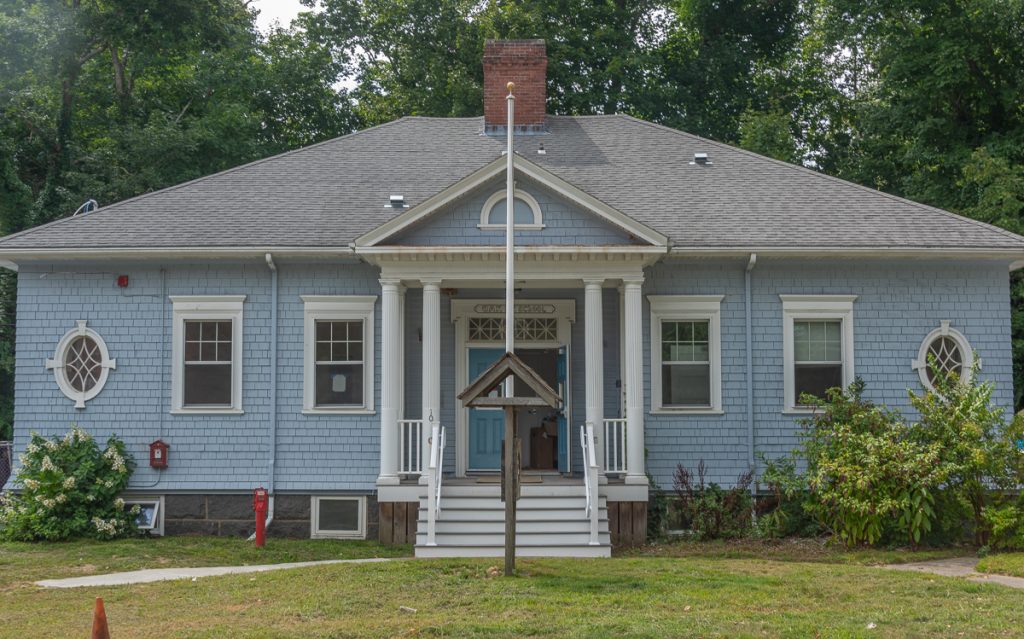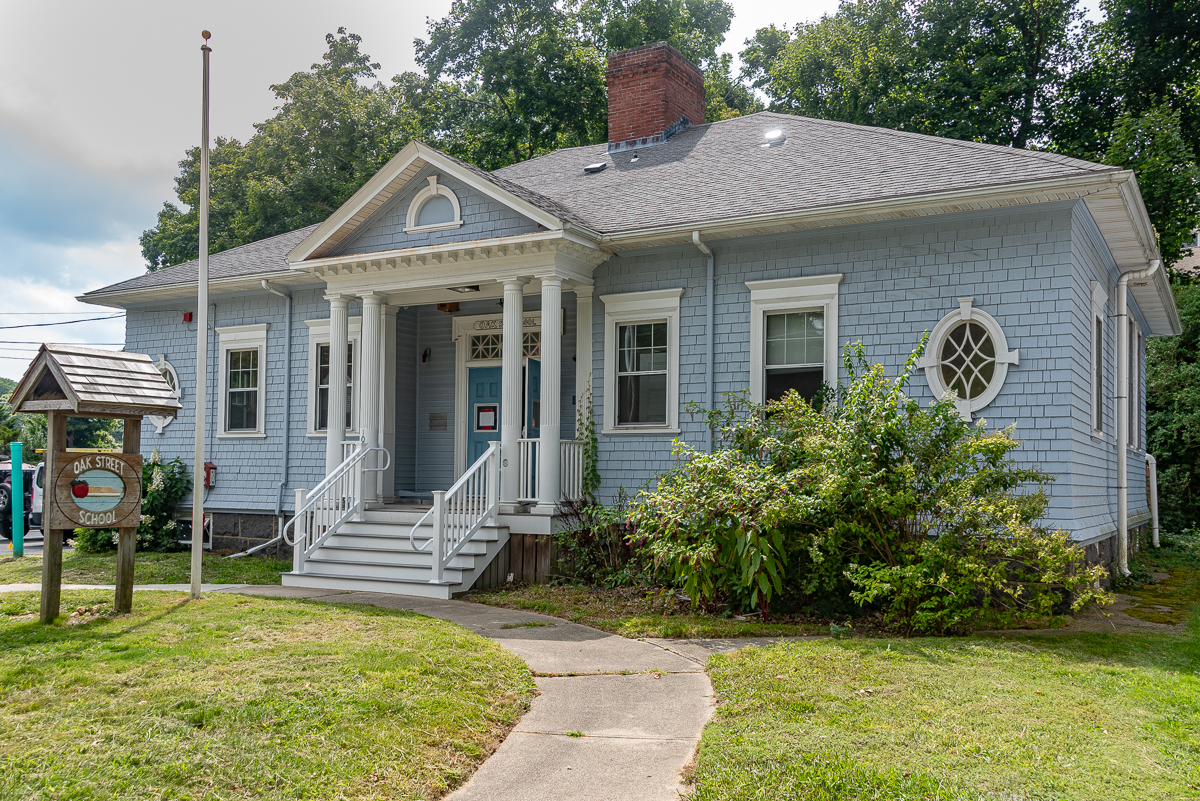A plan to convert the tiny building that long housed the Oak Street elementary school into affordable housing for seniors, veterans, or disabled people is $140,000 short of the funding needed for the project, which has ballooned to nearly $1.2 million.
With the October Town Meeting warrant closed, the Plymouth Housing Authority would normally have to wait until the spring to seek approval the additional money.
But on Tuesday night, Chris Plourde, the authority’s assistant executive director, turned to the Select Board for help.
Costs for the project – which would turn the building into just three apartments – have been escalating for several years. In 2021, Town Meeting approved spending $475,000 in Community Preservation funds based on an estimate from the Housing Authority, but bids from contractors exceeded that amount.
Last year, Town Meeting approved an additional $381,000 and the state awarded a $150,000 grant. The town had also approved another $22,000 in federal funds it received under the American Rescue Plan.
Then the project ran into its latest hurdle: the sewer main. Plourde said it will cost more than anticipated connect the building’s plumbing to existing sewer main down the street. The renovation work, which has been underway for three years, is nearly completed.
“Renovating a hundred-year-old building, there’s a lot of unforeseen things,” said Plourde.
So far, $1,028,000 has been awarded to fund the project. Another $140,000 would bring the total cost to $1,168,000, or $389,000 per unit.
Select Board members were not sympathetic.
“If you just went off the street and [were] to build three units, it probably would have been a lot cheaper,” said chair Dick Quintal.
Vice chair Kevin Canty was equally skeptical.
“I’ve, since the beginning, thought this was a historical preservation project masquerading as an affordable housing project,” Canty said. “The exorbitant cost per unit has borne that out, that putting affordable housing within historic structures is not the way to go.”
Plourde assured the board that the building is weeks away from being move-in ready.
Select Board member John Mahoney argued that if the town waits until spring Town Meeting to finish funding the project, the building will sit empty for 10 months. He proposed funding its completion now, on the condition of oversight from the Plymouth Building Committee and town staff, provided that the committee can assure there will not be any more cost overruns.
“We need to evaluate what occurred here, identify what went wrong,” Mahoney said. “We’re supposed to make note of that, not repeat those mistakes in the future.”
Mahoney pressed Plourde, asking if he could guarantee that all three units would be occupied by senior disabled veterans who live in Plymouth.
Plourde promised that local residents would occupy each of the one-bedroom units.
“If we don’t fund this, this may not get done and then that building will sit empty and I don’t want to see that,” said board member Charlie Bletzer.

Town Manager Derek Brindisi said if the town decides to use Community Preservation funds or an additional source of funding for affordable housing to pay for the project, Town Meeting would have to approve it. Using federal funds from the American Rescue Plan, he said, would not need Town Meeting’s OK.
Mahoney suggested that the town could use $110,000 from a fund collected from a tax on short-term rentals, plus $30,000 from the American Rescue Plan.
But Canty wasn’t keen on the idea.
“I am not going to put more money in this project,” he said. “$389,000 per unit is extremely expensive. I would rather do something like the town buys it back [from the Housing Authority] for $1, sells it to a private developer for $1 that would be willing to complete the affordable housing work.”
Select Board member David Golden agreed. Bletzer did not.
“You’re going to give it to a developer?” he said. “That doesn’t make sense to me.”
Quintal also didn’t like the idea of handing the property over to a private developer.
“Give it to a developer for a dollar, giving away a million-plus for a dollar,” he said. For another $140,000, Quintal added, he would like to see the project finished now. If the town waits until spring to appropriate the funds, he warned, the cost of construction will continue to climb.
Golden asked Quintal to schedule a special Sept. 4 meeting of the board to discuss whether to reopen the Town Meeting warrant and propose funding the $140,000.
Quintal agreed to do so.
Fred Thys can be reached at fred@plymouthindependent.org.

